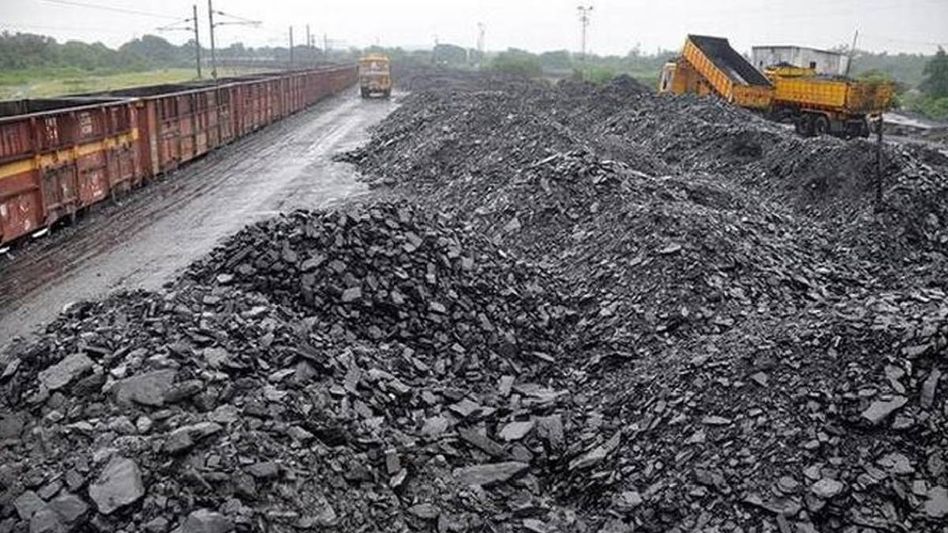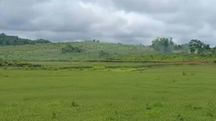Meghalaya: CEPRD slams ‘scientific mining’ in South Garo Hills, calls it ecological devastation
The Centre for Environment Protection and Rural Development (CEPRD) has condemned the ongoing “scientific mining” operations in Paromgre under Chokpot in South Garo Hills, terming them environmentally disastrous, legally untenable, and morally indefensible.

- CEPRD condemns mining in Paromgre, calling it environmentally disastrous and a betrayal of constitutional duties by the Meghalaya government.
- Mining near the Nokrek Biosphere Reserve threatens endangered species and violates the Wildlife (Protection) Act, 1972, and the Forest (Conservation) Act, 1980.
- CEPRD alleges mining operations violate environmental laws, lack public consultation, and undermine procedural justice.
The Centre for Environment Protection and Rural Development (CEPRD) has condemned the ongoing “scientific mining” operations in Paromgre under Chokpot in South Garo Hills, terming them environmentally disastrous, legally untenable, and morally indefensible.
In a strongly worded statement, the organization accused the Meghalaya government of betraying its constitutional and ecological responsibilities by permitting mining in one of the state’s most environmentally sensitive zones. CEPRD asserted that the so-called “scientific mining” being conducted is anything but scientific, alleging that it threatens to devastate the delicate ecosystem, endanger local communities, and violate multiple environmental and constitutional safeguards.
The Paromgre region lies in close proximity to the Nokrek Biosphere Reserve, a UNESCO-recognized ecological heritage site known for its pristine forests and rare biodiversity. CEPRD warned that mining activities in such proximity could lead to irreversible ecological destruction.
“The forests here are home to endangered species like the Hoolock Gibbon and the Himalayan Black Bear. Disrupting their habitat without environmental clearance is a direct breach of the Wildlife (Protection) Act, 1972,” the organization stated. It further highlighted that the operations contravene the Forest (Conservation) Act, 1980, which prohibits diversion of forest land for non-forest purposes without approval from the Central Government.
According to CEPRD, the ongoing mining operations flout multiple environmental laws, including the Environment (Protection) Act, 1986, and the Environmental Impact Assessment (EIA) Notification, 2006, which mandate environmental impact assessments and public hearings before project approval.
“There is no evidence of any transparent, consultative, or lawful process being followed,” CEPRD said. “The absence of public consultation points to a deliberate attempt to silence indigenous voices and bypass procedural justice.”
The group stressed that such violations erode the principles of environmental governance and amount to a systemic failure of the regulatory framework.
Paromgre forms part of an intricate ecological network supported by rivers such as Rompa, Rongdik, Khakiza, and Rongma—lifelines for the people of Chokpot and surrounding areas. CEPRD reported that these rivers are already suffering from contamination and siltation due to reckless excavation, warning that further mining could destroy the region’s water systems and threaten livelihoods.
“The degradation of these rivers signifies the slow death of an entire ecosystem,” the statement emphasized, adding that environmental degradation in Paromgre directly impacts the food security, health, and cultural identity of local communities.
CEPRD also expressed grave concern over reports suggesting possible illegal uranium exploration being conducted under the pretext of coal mining. Such activities, it warned, would not only pose catastrophic environmental damage but also expose local populations to severe radiological health risks.
“If true, this would constitute a direct violation of the Atomic Energy Act, 1962, and demand immediate investigation and criminal prosecution,” the organization asserted.
Citing Article 21 of the Constitution, which guarantees the right to life—including the right to a clean and healthy environment—CEPRD accused the state of violating fundamental rights. It also invoked Article 48A, which obligates the State to protect forests and wildlife, and Article 51A(g), which entrusts citizens with the duty to protect nature.
“By allowing destructive mining in Paromgre, the government has breached its constitutional duty and violated the public trust doctrine,” CEPRD declared, referencing landmark Supreme Court judgments such as M.C. Mehta vs. Kamal Nath (1997) and Indian Council for Enviro-Legal Action vs. Union of India (1996).
The organization has called upon the Government of Meghalaya, the Forest and Environment Department, the State Pollution Control Board, and the Ministry of Environment, Forest and Climate Change (MoEFCC) to immediately halt all ongoing mining and quarrying activities in Paromgre.
It has demanded a judicially monitored investigation into the legality and environmental impact of the operations, urging authorities to publish all permits, clearances, and agreements related to the project in accordance with the Right to Information Act, 2005.
“If the State continues to remain silent, CEPRD will approach the Hon’ble Supreme Court and National Green Tribunal (NGT) through Public Interest Litigation,” the statement warned.
In conclusion, CEPRD reminded policymakers that real progress cannot be measured in mineral output but in the well-being of forests, rivers, and communities.
“True development is not about extraction but preservation. What is happening in Paromgre is not ‘scientific mining’, it is systematic destruction. The government must choose between short-term gain and long-term survival,” the statement concluded.
Copyright©2025 Living Media India Limited. For reprint rights: Syndications Today









